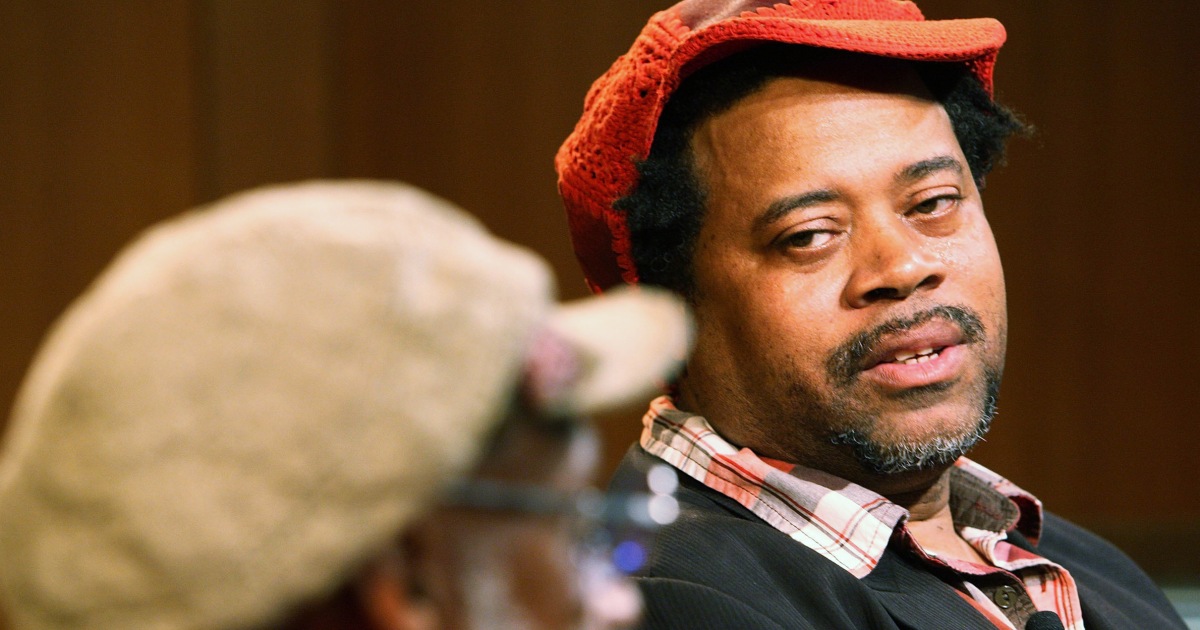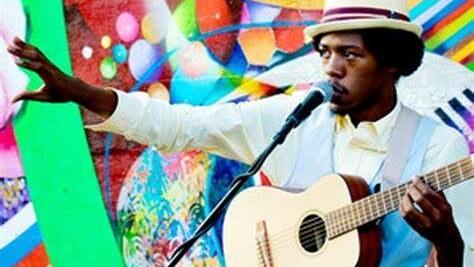Music and cultural critic Greg Tate dead at 64

Greg Tate, a audio and cultural critic who elevated hip-hop as a cultural phenomenon deserving of the type of respect and admiration jazz has received, has died. He was 64.
Laura Sell, a spokeswoman for Duke College Push, which released Tate’s “Flyboy 2: The Greg Tate Reader” in 2016, verified his death Tuesday.
The induce was not promptly offered.
Tate began impacting popular audio and criticism in the 1980s as a staff members writer for New York’s Village Voice, and he eventually contributed to the New York Instances, the Washington Put up and Vibe. He was a Louis Armstrong Traveling to Professor at Columbia University’s Centre for Jazz Scientific tests and lectured at New York’s Museum of Modern day Artwork. The Source journal called him “one of the godfathers of hip-hop journalism.”
Tate praised the Voice’s new music critic, Robert Christgau, for using the services of him in 1981. He’s been quoted as saying Christgau “considered Afro-diasporic musics really should on celebration be lined by people today who were not strangers to those communities.”
Early hip-hop, on the other hand, was not often a subject matter for Rolling Stone. When it did attract the awareness of pop’s mostly white essential institution, it was normally seen as a bubble-gum trend dependable for dazzling, baggy and tasteless fashion. It was not often taken very seriously.
Tate rolled it up, smoked it and exhaled dissertation-worthy observations.
Now it is difficult to obtain a finest-emcee listing that would not characteristic Rakim in the vicinity of its extremely top rated. In 1988, Tate reviewed Eric B. & Rakim’s most up-to-date single by clearing room for the duo on the best shelf of American musical greats, including Miles Davis.
“The tunes on ‘Follow the Leader’ is spooky, a science-fiction rating that appears straight out of the Tangerine Dream songbook,” he wrote in the Voice. “Rakim’s on an elocutionary pace-excursion, a black bullet coach slitting via hyperspace.”
He also wrote about rock ‘n’ roll, hardcore, jazz, avenue art, and “the post-nationalist black aesthetic.” He played guitar, co-founded the Black Rock writers’ coalition and started Burnt Sugar the Arkestra Chamber, described on its website as “a sprawling band of musicians whose prodigious staff allows them to freely juggle a extensive swath of the experimental soul-jazz-hip hop spectrum.”
In that 1986 Village Voice essay on the Black American aesthetic, Tate wrote, as a parenthetic aside, “It is our new music, primarily jazz, which confronts Western culture with its most intimidating and inconceivable Other: the sui generis black genius.”
He was born in Dayton, Ohio, grew up in Washington, D.C., and was motivated equally by the critics of Rolling Stone and the producing of Amiri Baraka, according to Artforum International Journal, which initially reported the information of his dying.
He examined movie and journalism at Howard College.
“I acquired to New York in ’81, just as hip-hop was blowing up,” he informed New York magazine in 2016. “Radio was not actively playing hip-hop. There had been no movies. The way I identified out about KRS-Just one, Rakim, Significant Daddy Kane and Public Enemy was word-of-mouth. It was quite substantially an underground dialogue, but being in New York in the ’80s we have been essentially at the epicenter of environment lifestyle.”
1 of Tate’s earliest feats, New Yorker workers writer Hua Hsu pointed out in 2016, was to “support to establish jazz and hip-hop as element of the same continuum of expression.”
For the hip-hop generation, now old plenty of to feature on the obituary site, Tate’s nods could be revelatory. “His form of crafting could be as exhilarating as art,” Hsu wrote.
Tate was celebrated amid peers and artists.
Hip-hop writer Michael A. Gonzalez wrote in 2007 that the critic’s 50th birthday social gathering at the Studio Museum of Harlem was attended by Vernon Reid, Aspiration Hampton, Kevin Powell, Maureen McMahon and other luminaries.
Like a good deal of writers who gravitated towards hip-hop, Los Angeles journalist Donnell Alexander, a University of Southern California journalism fellow and writer of “Ghetto Celeb: Browsing for My Father in Me,” said Tate motivated his occupation.
“He was one of the extremely very first writers I desired to be,” he stated by electronic mail. “I’d be studying the Village Voice audio section. I virtually virtually disbelieved the column inches ended up authentic, it was so Black and idiosyncratic.”
Tate’s bibliography involves “Flyboy in the Buttermilk: Essays on Modern The usa” (1992), “Everything But the Burden: What White People Are Getting From Black Society” (2003), “Midnight Lightning: Jimi Hendrix and the Black Encounter” (2003), and “Flyboy 2.”
On Tuesday, New Yorker journal employees writer Jelani Cobb, who’s an MSNBC contributor, tweeted that “Flyboy in the Buttermilk” is “a clinic on literary brilliance.”
Alexander mentioned that one of Tate’s impacts was to tease audience with requires on pop music but then acquire them down a different road.
“Tate referenced sci-fi,” he explained. “He’d toss a hip-hop sense on to a piece about rock. He wrote about weird jazz albums with these types of clued-in enthusiasm that I experienced no strategy the form’s relevance was fading. All of this was dazzling in the risk it presented.”
His demise is sad, Alexander mentioned, but it will open eyes.
“It’s interesting to assume of how quite a few much more folks are going to examine him now,” he mentioned.



